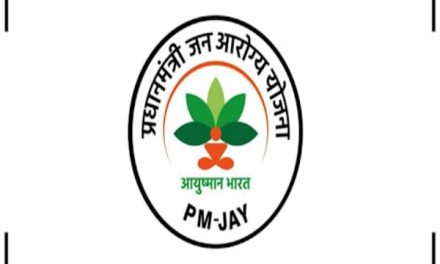The Union cabinet headed by Prime Minister Narendra Modi on Wednesday approved an amendment to the six-and-half decade-old Essential Commodities Act to deregulate food items, including cereals, pulses, and onion, a move that will transform the farm sector and help raise farmers’ income.
While India has become surplus in most agri-commodities, farmers have been unable to get better prices due to lack of investment in cold storage, processing and export as the entrepreneurial spirit get dampened due to hanging sword of Essential Commodities Act, Union minister Prakash Javadekar said while announcing the decisions taken by the Cabinet.
With this amendment, commodities like cereals, pulses, oilseeds, edible oils, onion, and potatoes will be removed from the list of essential commodities. This will remove fears of private investors of excessive regulatory interference, Javadekar said.
In addition, the Cabinet approved ‘The Farming Produce Trade and Commerce (Promotion and Facilitation) Ordinance, 2020’ to ensure barrier-free trade in agriculture produce. This will help create an ecosystem where farmers and traders can enjoy the freedom of choice of sale and purchase of agri-produce.
Agriculture minister Narendra Tomar said that the Ordinance will promote barrier-free inter and intra-state trade and commerce outside the physical premises of markets notified under state agricultural produce marketing legislations. It will create an ecosystem where the farmers and traders will enjoy the freedom of choice of sale and purchase of agri-produce.
“This is a historic-step in unlocking the vastly regulated agricultural markets in the country,” he said.
The Ordinance will open more choices for the farmer, reduce marketing costs for the farmers, and help them in getting better prices. It also proposes electronic trading in the transaction platform for ensuring a seamless trade electronically, the minister added.
“Basically, it aims to create additional trading opportunities outside the APMC market yards to help farmers get remunerative prices due to additional competition. It will certainly pave the way for creating ‘One India, One Agriculture Market’ and will lay the foundation for ensuring golden harvests for our hard-working farmers,” Tomar noted.
The government also approved ‘The Farmer’s (Empowerment and Protection) Agreement on Price Assurance and Farm Services Ordinance, 2020’ to empower farmers to engage with processors, aggregators, wholesalers, large retailers, and exporters.
Announcing the Cabinet decisions, Tomar said, “This will go a long way in helping India’s farmers while also transforming the agriculture sector.”
Tomar further said that Ordinance will empower farmers for engaging with processors, aggregators, large retailers, exporters, etc, on a level playing field without any fear of exploitation. It will act as a catalyst to attract private sector investment for building supply chains for the supply of Indian farm produce to global markets. Farmers will get access to technology and advice for high-value agriculture and get a ready market for such products.
It will also enable farmers to engage in direct marketing, thereby eliminating intermediaries and resulting in full realization of price. Farmers have been provided adequate protection and effective dispute resolution mechanism has been provided for with clear timelines for redressal, the agriculture minister added.
These proposals were part of the Rs 20 lakh crore economic package announced to help those affected due to the lockdown clamped to fight the spread of COVID-19 disease.
Also read: SBI Bank FD interest rates reduced again: Check the latest rates











